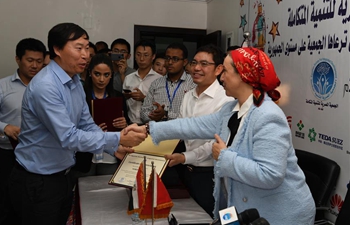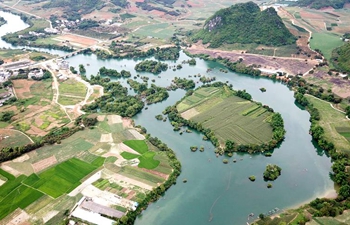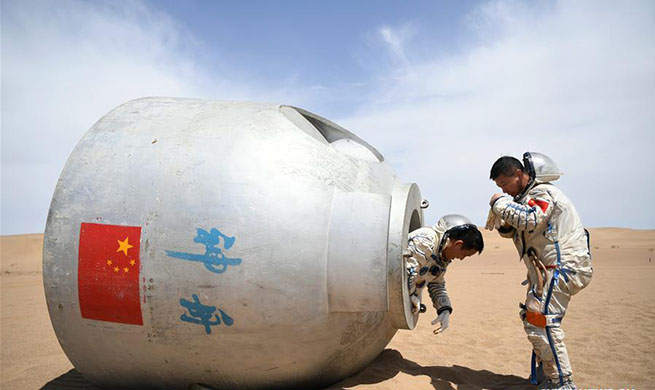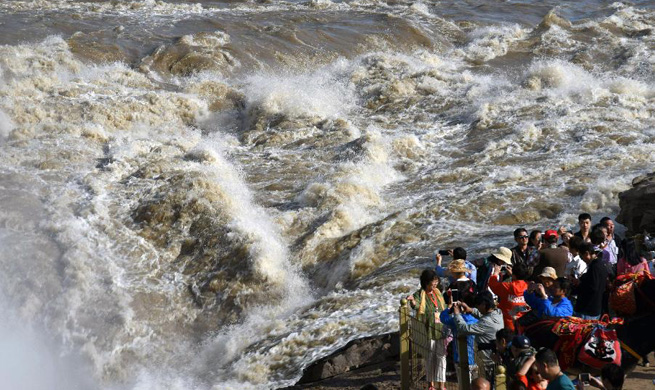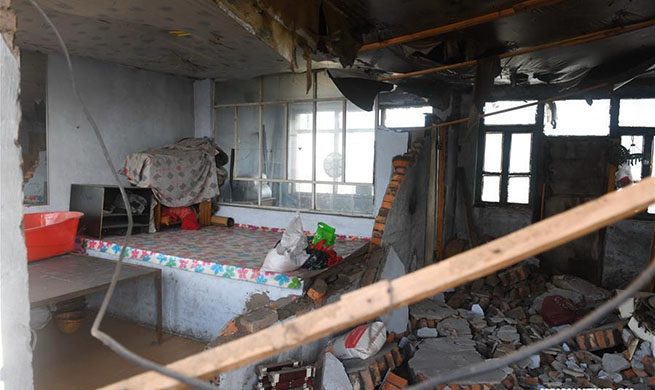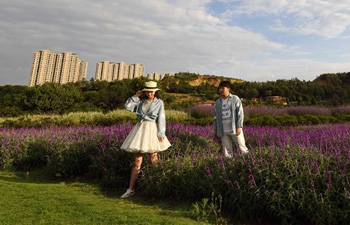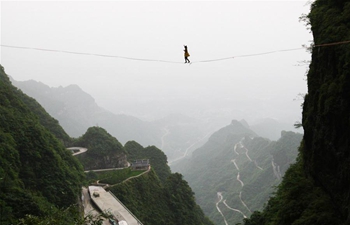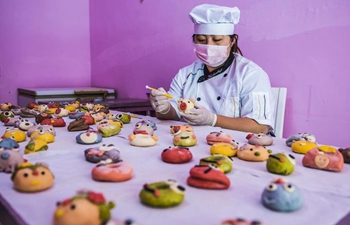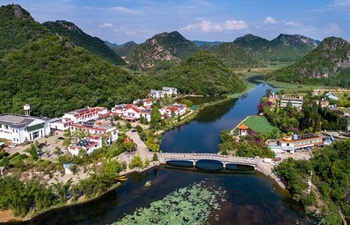KUNMING, May 28 (Xinhua) -- Bao Mingwei treats "patients" more than 30 times his own size.
Bao, 39, is a veterinarian for wild elephants at the Asian Elephant Breeding and Rescue Center in Xishuangbanna National Nature Reserve in southwest China's Yunnan Province.
For 18 years, Bao has helped rescue more than 20 wild elephants, 10 of which are still at the center for further rehabilitation training and medical treatment.
"Rescuing wild elephants is very difficult, as the animal is huge and can be aggressive and attack people sometimes," Bao said. "An adult Asian elephant weighs more than 2,000 kg."
Most elephants in need of help are reported by local villagers, and professional rescuers rush to the scene immediately.
"Some elephants were injured in fights or falls from mountains, and some were abandoned by their herd due to congenital diseases such as heart problems," Bao said.
According to Bao, wild elephants are intelligent. They leave sick herd members near villages on purpose, counting on humans to save them.
"Judging from their injuries and the situations on the ground, we deploy different rescue teams of about 60 people, sometimes even with a crane and a helicopter," he added.
"In remote areas, we even have to pave the way to transport the animals," he said.
According to Bao, the worst situation is rescuing at night when the forests are in utter darkness and a flashlight is the only tool when conducting rescue work.
Elephants slightly injured are sent back to the forests soon after recovery, but those in serious conditions have to be treated at the center for a long time before being released.
"For every elephant at the center, we arrange two keepers to accompany them 24 hours a day. They have to lead the elephants to the mountains every day for them to re-adapt to the wild," Bao said.
Fresh bananas in hand, Bao feeds the rescued elephants while conducting daily checks on their teeth and mouths. He also takes their temperatures and checks their excrement to ensure the animals are healthy.
"Every six months, we do a thorough physical examination on those elephants," he said. "Just like little kids, some elephants don't like doctors because we give them injections when they are sick."
Wild Asian elephants are mainly scattered in three prefectures in Yunnan, with Xishuangbanna home to the biggest elephant population.
The animals are under Class-A protection in China and are included on the International Union for Conservation of Nature (IUCN) red list of threatened species.
"Enhanced protection for wild animals has led to a rise in the number of the mammals in recent years," Bao said. "In the 1990s, there were only about 170 wild Asian elephants living in China."
It is estimated that the population has risen to around 300. In March, a group of more than 50 was spotted in the valley.
The 340-hectare Wild Elephant Valley is a scenic area where elephants often roam. It was opened in 1990 at a cost of 150 million yuan (23.5 million U.S. dollars).
In 2008, the breeding and rescue center was established there. So far, five elephants have been born at the center.
As an elephant lover, Bao started to work at the Wild Elephant Valley in 2000, after graduating from Yunnan Animal Science and Veterinary Institute.
Bao now has five students and he has written eight academic papers about wild elephants. But he stresses the need for more veterinarians devoted to the animals.
"In China, there are fewer than 10 professional elephant doctors. Protection and rescue can be better achieved with more devoted to the field," Bao said.






